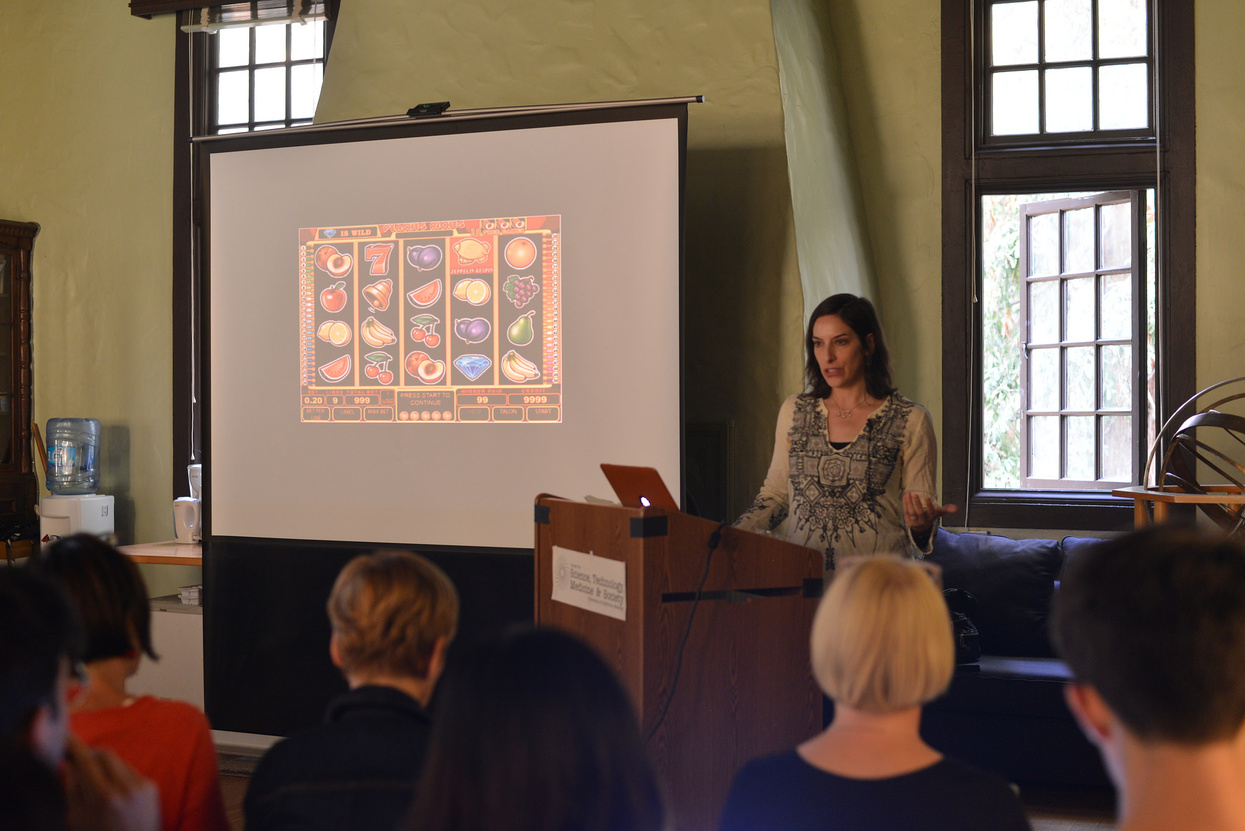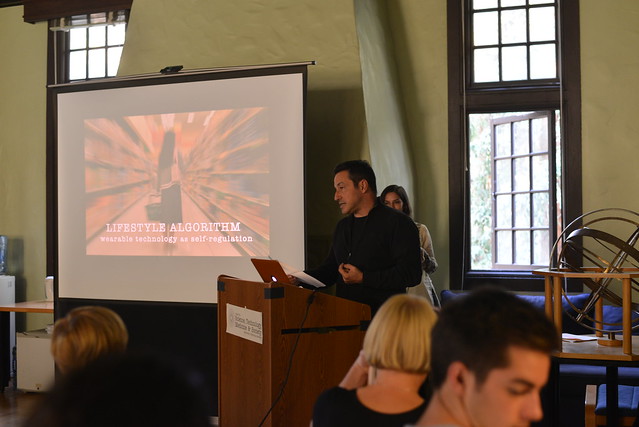HTNM Revisited: Natasha Schüll

History and Theory of New Media Graduate Liaison Renée Pastel recaps Natasha Schüll's lecture Datasense, which took place on 10/12/2017
On October 12, 2017, Professor Natasha Schüll of NYU’s Department of Media, Culture, and Communication made her triumphant return to UC Berkeley (where she completed her PhD degree in Anthropology in 2003) to present her work to a packed audience for the Fall 2017 History and Theory of New Media lecture series, in conjunction with the Center for Science, Technology, Medicine & Society.
Discussing work from her forthcoming book, Keeping Track: Sensor Tehnology, Self-Regulation, and the Data-Driven Life, Schüll traced how she came to study the affective side of tracking the mundane aspects of everyday life. Coming off of a talk for the Sociology department the day before, “Lifestyle Algorithm: wearable technology as self-regulation,” Schüll focused her talk for HTNM and CSTMS less on design and self-governance of self-tracking devices and more on how it feels to outsource quantifying of lifestyle elements such as steps taken, water drunk, time standing, etc.
Beginning with research from her first book, Addiction by Design: Machine Gambling in Las Vegas, Schüll unexpectedly connected the qualitative side of gambler logic at slot machines and in online poker matches to the experience and appeal of mediating self-measurements. Talking through the interviews she had done with gambling addicts on their affective self-monitoring, she proposed an origin for her thinking about self-tracking in the ways in which gamblers tracked their habits and altered behavior to optimize their returns and experience.
Hopping from gamblers’ initial desire to act in a fully rational, bot-like way and subsequent realization that this was not ultimately ideal, to what the ideal self might be and how it might be created, she moved to a brief discussion of self-tracker enthusiasts, some of whom belong to lifelogging movement Quantified Self. Haunted by questions of self-regulation and the ethics of outsourcing self-knowledge, Schüll’s talk ended by proposing a shift in the role of self-tracking devices and apps from “compass to thermostat,” information to guidance. Where these devices once directed users to self-regulate, they now tap, buzz and poke the user in the right direction to regulate the self, mediated by the device. She ended by asking the audience to consider, “What kind of self do certain algorithms contribute to or constrain?”
The Q+A period allowed further exploration of some of the ethical questions raised, as well as of Schüll’s link between gamblers and self-tracking device users that seemed to stem from a desire for a state of nothing or automation, in which the individual no longer needs to think autonomously. This in turn raised the distinction Schüll had only hinted at in her talk between the psychoanalytic self as volumetric, as opposed to the temporal depth of the tracked self. This Q+A period concluded with a dialogue around the self and robots/automating aspects of life. While Schüll was quick to acknowledge the more potentially disturbing side of self-tracking devices, she also emphasized the importance of such devices to particular audiences, such as those with young children and/or elders for whom they are responsible.
About the History and Theory of New Media Lecture Series
The History and Theory of New Media Lecture Series brings to campus leading humanities scholars working on issues of media transition and technological emergence. The series promotes new, interdisciplinary approaches to questions about the uses, meanings, causes, and effects of rapid or dramatic shifts in techno-infrastructure, information management, and forms of mediated expression. Presented by the Berkeley Center for New Media, these events are free and open to the public. For more information, visit: http://htnm-berkeley.com/

